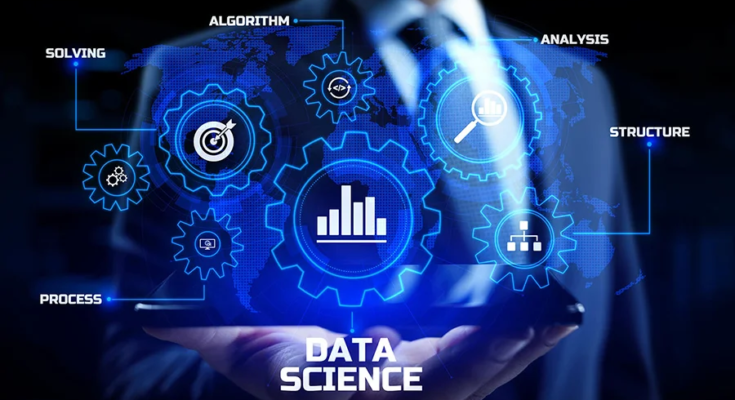Data is often hailed as the new oil. Its immense potential to drive innovation, enhance decision-making, and transform industries has propelled the field of data science into the limelight. Consequently, the demand for data science professionals has surged, resulting in an increasing number of degree programs dedicated to this discipline. This article aims to provide a comprehensive overview of data science degrees, addressing frequently asked questions and shedding light on the key aspects of pursuing a career in data science. Whether you’re a prospective student, a career changer, or just someone curious about this rapidly evolving field, read on to explore the world of data science.
Understanding Data Science Degrees
What is Data Science?
Data science is a multidisciplinary field that uses scientific methods, algorithms, processes, and systems to extract knowledge and insights from structured and unstructured data. This knowledge is valuable for making data-driven decisions, understanding trends, and solving complex problems.
Why Pursue a Degree in Data Science?
A data science degree equips individuals with the knowledge and skills required to analyze data, make predictions, and draw actionable insights. There are several reasons to consider a data science degree:
High Demand: Organizations across various sectors are in constant need of data scientists to make sense of the growing volumes of data they generate.
Competitive Salaries: Data scientists typically enjoy lucrative salaries due to their specialized skills.
Versatility: Data science is applicable across various industries, from healthcare to finance, making it a versatile career choice.
Problem Solving: Data scientists work on real-world problems, contributing to advancements in science, technology, and business.
Career Growth: With the constant evolution of technology, data science professionals have ample opportunities for career growth.
Types of Data Science Degrees
Data science degrees come in various forms, catering to different educational backgrounds and career goals. Some common degree options include:
Bachelor’s in Data Science: A 4-year undergraduate program that covers the fundamentals of data science, including statistics, programming, and data analysis.
Master’s in Data Science: A graduate program that delves deeper into data science concepts and often includes a capstone project or thesis.
Ph.D. in Data Science: A doctoral program focusing on research and advanced data science topics, suitable for those interested in academia or highly specialized roles.
Prerequisites and Eligibility
The prerequisites for data science programs can vary depending on the level of the degree. However, some common prerequisites include:
Bachelor’s Degree: For a bachelor’s in data science, a high school diploma or equivalent is usually sufficient.
Master’s Degree: Most master’s programs require a bachelor’s degree in a related field, such as computer science, mathematics, or engineering.
Ph.D. Degree: Admission to a Ph.D. program often requires a master’s degree in data science or a related field.
Also Read: Data Science Course Eligibility
Key Curriculum Components
The curriculum of a data science degree program typically includes a combination of the following subjects:
Mathematics: Courses in mathematics, particularly statistics and linear algebra, are essential for understanding data analysis.
Programming: Proficiency in programming languages like Python and R is crucial for data manipulation and analysis.
Data Analysis: Courses on data cleaning, transformation, and visualization are necessary to make data interpretable.
Machine Learning: Understanding machine learning algorithms and their applications is a cornerstone of data science.
Data Ethics: Ethical considerations in data collection, analysis, and decision-making are becoming increasingly important.
Domain Knowledge: Many programs also offer courses in specific domains such as finance, healthcare, or marketing, which help tailor data science skills to industry needs.
Duration of Data Science Programs
The duration of data science programs can vary based on the level of the degree and the institution. Typically, it takes:
3-4 years for a bachelor’s degree in data science
1-2 years for a master’s degree in data science
3-5 years for a Ph.D. in data science
Frequently Asked Questions (FAQs)
1. What Job Opportunities Exist for Data Science Graduates?
Data science graduates can pursue a wide range of careers, including:
- Data Analyst
- Data Scientist
- Machine Learning Engineer
- Business Intelligence Analyst
- Statistician
- Data Engineer
- Data Science Consultant
2. What Skills Are Essential for a Data Scientist?
Key skills for data scientists include proficiency in programming languages (e.g., Python, R), statistical analysis, machine learning, data visualization, and domain knowledge.
3. Do I Need Strong Math Skills to Succeed in Data Science?
While a strong mathematical foundation is beneficial, there are many tools and libraries available that simplify complex math for data scientists. However, a good understanding of statistics and linear algebra is important.
4. Can I Transition to Data Science from a Non-Technical Background?
Yes, it is possible to transition to data science from a non-technical background. Many data science programs offer prerequisite courses to bridge the knowledge gap.
5. Are Online Data Science Degrees as Valuable as On-Campus Degrees?
Online data science degrees can be equally valuable, provided they are accredited and offer hands-on experience and networking opportunities. Many reputable institutions offer online data science programs.
6. What’s the Difference Between Data Science and Data Analytics?
Data science focuses on extracting knowledge and insights from data using advanced statistical and machine-learning techniques. Data analytics, on the other hand, is more focused on examining historical data to identify trends and patterns for decision-making.
7. Is There a High Demand for Data Scientists?
Yes, the demand for data scientists continues to grow as more industries recognize the importance of data-driven decision-making.
8. What Are the Key Ethical Considerations in Data Science?
Ethical concerns in data science include issues related to privacy, bias in algorithms, and the responsible use of data, especially when dealing with sensitive information.
9. Can I Specialize in a Specific Area of Data Science?
Yes, data scientists can specialize in areas like natural language processing, computer vision, deep learning, or geospatial analysis based on their interests and career goals.
10. What Are the Future Trends in Data Science?
The future of data science includes advancements in AI and machine learning, increasing automation, and the integration of data science in various industries such as healthcare, finance, and cybersecurity.
Conclusion
Data science has emerged as one of the most promising fields in the 21st century, with a growing demand for skilled professionals who can harness the power of data to drive innovation and solve complex problems. Pursuing a degree in data science is a path to a rewarding and dynamic career, offering opportunities in various industries and a chance to shape the future through data-driven insights.
In this article, we have covered the fundamentals of data science degrees, including program types, prerequisites, curriculum components, and the wealth of career opportunities available to graduates. We have also addressed common questions and concerns that prospective students and aspiring data scientists might have.
As we move further into the era of big data, data science will continue to evolve and play a pivotal role in shaping the future of technology and decision-making. With the right education and a commitment to staying up-to-date with emerging trends, data scientists have a bright future ahead of them. Whether you’re just starting your journey in data science or considering a career change, the opportunities in this field are boundless.
In conclusion, a data science degree is not just an educational choice; it’s an investment in a future where data-driven insights are the currency of success. So, if you have a passion for data and a curiosity for discovery, consider embarking on a data science journey to explore the untapped potential of this exciting field.




